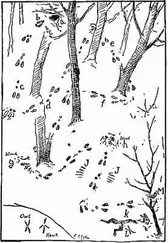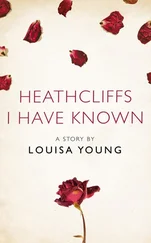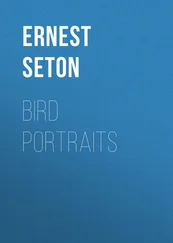Ernest Seton - Wild Animals I Have Known
Здесь есть возможность читать онлайн «Ernest Seton - Wild Animals I Have Known» весь текст электронной книги совершенно бесплатно (целиком полную версию без сокращений). В некоторых случаях можно слушать аудио, скачать через торрент в формате fb2 и присутствует краткое содержание. Год выпуска: 2001, Жанр: Природа и животные, на английском языке. Описание произведения, (предисловие) а так же отзывы посетителей доступны на портале библиотеки ЛибКат.
- Название:Wild Animals I Have Known
- Автор:
- Жанр:
- Год:2001
- ISBN:нет данных
- Рейтинг книги:5 / 5. Голосов: 1
-
Избранное:Добавить в избранное
- Отзывы:
-
Ваша оценка:
- 100
- 1
- 2
- 3
- 4
- 5
Wild Animals I Have Known: краткое содержание, описание и аннотация
Предлагаем к чтению аннотацию, описание, краткое содержание или предисловие (зависит от того, что написал сам автор книги «Wild Animals I Have Known»). Если вы не нашли необходимую информацию о книге — напишите в комментариях, мы постараемся отыскать её.
Wild Animals I Have Known — читать онлайн бесплатно полную книгу (весь текст) целиком
Ниже представлен текст книги, разбитый по страницам. Система сохранения места последней прочитанной страницы, позволяет с удобством читать онлайн бесплатно книгу «Wild Animals I Have Known», без необходимости каждый раз заново искать на чём Вы остановились. Поставьте закладку, и сможете в любой момент перейти на страницу, на которой закончили чтение.
Интервал:
Закладка:
It was Molly and Rag. They were stretched under the skunk-cabbage, not because they liked its rank smell, but because the winged ticks could not stand it at all and so left them in peace.
Rabbits have no set time for lessons, they are always learning; but what the lesson is depends on the present stress, and that must arrive before it is known. They went to this place for a quiet rest, but had not been long there when suddenly a warning note from the ever-watchful bluejay caused Molly's nose and ears to go up and her tail to tighten to her back. Away across the Swamp was Olifant's big black and white dog, coming straight toward them.
"Now," said Molly, "squat while I go and keep that fool out of mischief." Away she went to meet him and she fearlessly dashed across the dog's path.
"Bow-ow-ow," he fairly yelled as he bounded after Molly, but she kept just beyond his reach and led him where the million daggers struck fast and deep, till his tender ears were scratched raw, and guided him at last plump into a hidden barbed-wire fence, where he got such a gashing that he went homeward howling with pain. After making a short double, a loop and a baulk in case the dog should come back, Molly returned to find that Rag in his eagerness was standing bolt upright and craning his neck to see the sport.
This disobedience made her so angry that she struck him with her hind foot and knocked him over in the mud.
One day as they fed on the near clover field a red-tailed hawk came swooping after them. Molly kicked up her hind legs to make fun of him and skipped into the briers along one of their old pathways, where of course the hawk could not follow. It was the main path from the Creekside Thicket to the Stove-pipe brushpile. Several creepers had grown across it, and Molly, keeping one eye on the hawk, set to work and cut the creepers off. Rag watched her, then ran on ahead, and cut some more that were across the path. "That's right," said Molly, "always keep the runways clear, you will need them often enough. Not wide, but clear. Cut everything like a creeper across them and some day you will find you have cut a snare." "A what?" asked Rag, as he scratched his right ear with his left hind foot.
"A snare is something that looks like a creeper, but it doesn't grow and it's worse than all the hawks in the world," said Molly, glancing at the now far-away red-tail, "for there it hides night and day in the runway till the chance to catch you comes."
"I don't believe it could catch me," said Rag, with the pride of youth as he rose on his heels to rub his chin and whiskers high up on a smooth sapling. Rag did not know he was doing this, but his mother saw and knew it was a sign, like the changing of a boy's voice, that her little one was no longer a baby but would soon be a grown-up Cottontail.
V
There is magic in running water. Who does not know it and feel it? The railroad builder fearlessly throws his bank across the wide bog or lake, or the sea itself, but the tiniest nil of running water he treats with great respect, studies its wish and its way and gives it all it seems to ask. The thirst-parched traveller in the poisonous alkali deserts holds back in deadly fear from the sedgy ponds till he finds one down whose centre is a thin, clear line, and a faint flow, the sign of running, living water, and joyfully he drinks.
There is magic in running water, no evil spell can cross it. Tam O'Shanter proved its potency in time of sorest need. The wild-wood creature with its deadly foe following tireless on the trail scent, realizes its nearing doom and feels an awful spell. Its strength is spent, its—every trick is tried in vain till the good Angel leads it to the water, the running, living water, and dashing in it follows the cooling stream, and then with force renewed—takes to the woods again.
There is magic in running water. The hounds come to the very spot and halt and cast about; and halt and cast in vain. Their spell is broken by the merry stream, and the wild thing lives its life.
And this was one of the great secrets that Raggylug learned from his mother—"after the Brierrose, the Water is your friend."
One hot, muggy night in August, Molly led Rag through the woods. The cotton-white cushion she wore under her tail twinkled ahead and was his guiding lantern, though it went out as soon as she stopped and sat on it. After a few runs and stops to listen, they came to the edge of the pond. The hylas in the trees above them were singing 'sleep, sleep,' and away out on a sunken log in the deep water, up to his chin in the cool-ing bath, a bloated bullfrog was singing the praises of a 'jug o' rum.'
"Follow me still," said Molly, in rabbit, and 'flop' she went into the pond and struck out for the sunken log in the middle. Rag flinched but plunged with a little 'ouch,' gasping and wobbling his nose very fast but still copying his mother. The same movements as on land sent him through the water, and thus he found he could swim, On he went till he reached the sunken log and scrambled up by his dripping mother on the high dry end, with a rushy screen around them and the Water that tells no tales. After this on warm black nights when that old fox from Springfield came prowling through the Swamp, Rag would note the place of the bullfrog's voice, for in case of direst need it might be a guide to safety. And thenceforth the words of the song that the bullfrog sang were 'Come, come, in danger come.'
This was the latest study that Rag took up with his mother—it was really a post-graduate course, for many little rabbits never learn it at all.
VI
No wild animal dies of old age. Its life has soon or late a tragic end. It is only a question of how long it can hold out against its foes. But Rag's life was proof that once a rabbit passes out of his youth he is likely to outlive his prime and be killed only in the last third of life, the downhill third we call old age.
The Cottontails had enemies on every side. Their daily life was a series of escapes. For dogs, foxes, cats, skunks, coons, weasels, minks, snakes, hawks, owls, and men, and even insects were all plotting to kill them They had hundreds of adventures, and at least once a day they had to fly for their lives and save themselves by their legs and wits.
More than once that hateful fox from Springfield '\ drove them to taking refuge under the wreck of a barbedwire hog-pen by the spring. But once there they could look calmly at him while he spiked his legs in vain attempts to reach them.
Once or twice Rag when hunted had played off the hound against a skunk that had seemed likely to be quite as dangerous as the dog.
Once he was caught alive by a hunter who had a hound and a ferret to help him. But Rag had the luck to escape next day, with a yet deeper distrust of ground holes. He was several times run into the water by the cat, and many times was chased by hawks and owls, but for each kind of danger there was a safeguard. His mother taught him the principal dodges, and he improved on them and made many new ones as he grew older. And the older and wiser he grew the less he trusted to his legs, and the more to his wits for safety.
Ranger was the name of a young hound in the neighborhood. To train him his master used to put him on the trail of one of the Cottontails. It was nearly always Rag that they ran, for the young buck enjoyed the runs as much as they did, the spice of danger in them being just enough for zest. He would say:
"Oh, mother! here comes the dog again, I must have a run to-day."
"You are too bold, Raggy, my son!" she might reply.
"I fear you will run once too often."
"But, mother, it is such glorious fun to tease that fool dog, and it's all good training. I'll thump if I am too hard pressed, then you can come and change off while I get my second wind."
Читать дальшеИнтервал:
Закладка:
Похожие книги на «Wild Animals I Have Known»
Представляем Вашему вниманию похожие книги на «Wild Animals I Have Known» списком для выбора. Мы отобрали схожую по названию и смыслу литературу в надежде предоставить читателям больше вариантов отыскать новые, интересные, ещё непрочитанные произведения.
Обсуждение, отзывы о книге «Wild Animals I Have Known» и просто собственные мнения читателей. Оставьте ваши комментарии, напишите, что Вы думаете о произведении, его смысле или главных героях. Укажите что конкретно понравилось, а что нет, и почему Вы так считаете.





